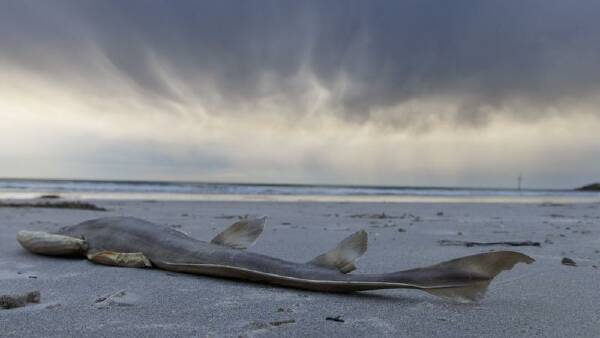
The toxic algal bloom impacting marine life off the coast of South Australia is leading to what some officials describe as “a collapse of the ecosystem.” Opposition Leader Sussan Ley made this statement during her visit to affected coastal communities on Wednesday. Since its identification in March 2023 near the Fleurieu Peninsula, the bloom has killed tens of thousands of marine animals and continues to spread along the coastline.
“It’s not just fish; it’s seagrass, it’s water birds, it’s the whole web of life in our oceans,” Ley emphasized. She added that the situation is dire, stating, “This is a complete collapse.”
In a separate engagement, Environment Minister Murray Watt visited the South Australian Research and Development Institute where he met with scientists studying the bloom. He announced that the federal government is expediting an expert assessment of the bloom’s impact on marine life to determine if more species need to be added to the threatened species list. Currently, this list includes species such as the whitefin swellshark and longnose skate. New listings could necessitate the creation of conservation plans aimed at protecting these vulnerable species.
The algal bloom has led to over 400 marine species, including sharks, rays, and various fish, washing ashore. On Wednesday, authorities removed a deceased dolphin from Henley Beach in Adelaide. Minister Susan Close indicated that while dolphin populations are struggling to find food due to fish deaths caused by the bloom, autopsy results have not yet confirmed poisoning in any dolphins.
The Australian Marine Conservation Society (AMCS) and Humane World for Animals welcomed the expedited assessment as a critical step towards safeguarding rare and vulnerable species. AMCS spokesperson Alexia Wellbelove remarked, “The algal bloom disaster is hammering species that are already on the brink. Fast-tracking assessments is the right call and shows the government is listening to the science.”
Prime Minister Anthony Albanese is scheduled to visit South Australia next week to meet with communities heavily impacted by the algal bloom. State Premier Peter Malinauskas expressed a proactive approach, stating, “If you operate under the assumption that it will be around in spring and summer, there will be a call on more Commonwealth resources.”
To address the repercussions of the bloom, the federal government has announced a jointly funded package of $28 million aimed at mitigating damage. The urgency of the situation continues to grow as authorities and communities grapple with the environmental crisis unfolding along the South Australian coast.






